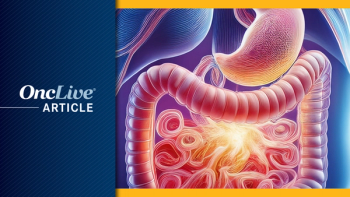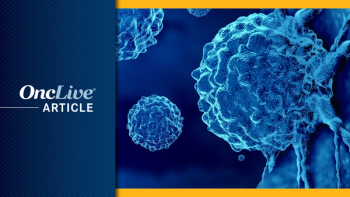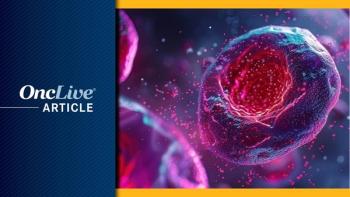
FDA Grants Regenerative Medicine Advanced Therapy and Fast Track Designations to CT103A in Relapsed/Refractory Myeloma
The FDA has granted regenerative medicine advanced therapy and fast track designations to equecabtagene autoleucel for the treatment of patients with relapsed/refractory multiple myeloma.
The FDA has granted regenerative medicine advanced therapy and fast track designations to equecabtagene autoleucel (CT103A) for the treatment of patients with relapsed/refractory multiple myeloma, according to an announcement from IASO Biotherapeutics.1
CT103A is an investigational BCMA-targeted CAR T-cell therapy that uses a lentiviral vector containing a CAR structure with a fully human single-chain variable fragment, CD8a hinger, and transmembrane, 4-1BB co-stimulatory and CD3ζ activation domains. In February 2022,
CT103A is under investigation in the phase 1/2 FUMANBA-1 trial (NCT05066646).
FUMANBA-1 enrolled patients with relapsed or refractory multiple myeloma who received at least 3 prior lines of therapy, including treatment with a proteasome inhibitor and immunomodulatory drug. Patients were required to have experienced disease progression during or within 1 year of their last line of therapy; have an ECOG performance status of 0 or 1; and be BCMA positive.
Enrolled patients received leukapheresis to manufacture CT103A, and bridging therapy was permitted between the collection of peripheral blood mononuclear cells and lymphodepletion.4 Lymphodepletion consisted of fludarabine and cyclophosphamide given for 3 consecutive days, and following a rest day, patients received a single infusion of CT103A at 1.0 x 106 CAR+ T cells/kg, which was established as the recommended phase 2 dose.
Investigators will follow patients for a minimum of 2 years following CT103A infusion. Long-term follow-up for lentiviral vector safety will continue for up to 15 years following treatment.
The primary end point of phase 1 of the trial was safety and tolerability, and secondary end points included efficacy, pharmacokinetics (PK), and pharmacodynamics (PD). The primary end point for phase 2 was ORR, and secondary end points included safety and tolerability, minimal residual disease (MRD), overall survival, duration of response, time to response, PK, and PD.
Additional data presented at the 2022 EHA Congress showed that 92.4% of patients were MRD negative and all patients who achieved a CR/sCR to treatment were MRD negative. The median duration of MRD negativity was not yet reached.3
The median progression-free survival (PFS) in all cohorts except those who previously received CAR T-cell therapy had not yet been reached. Patients who received prior CAR T-cell therapy experienced a median PFS of 7.5 months (95% CI, 2.9–not reached).
Regarding safety, 93.7% of patients who received CT103A experienced grade 3 or higher treatment-related adverse effects (TRAEs). The most common TRAEs included neutropenia (82.3%), thrombocytopenia (59.5%), and lymphocytopenia (58.2%). Investigators observed serious AEs in 69.6% of patients, including pneumonia (44.3%), thrombocytopenia (21.5%), and enteritis infectious (8.9%).
Cytokine release syndrome (CRS) of any grade occurred in 94.9% of patients. The rates of grade 1 and grade 2 CRS were 73.4% and 21.5%, respectively. The median time to onset of CRS was 6 days, and the median duration was 5 days. Immune effector cell–associated neurotoxicity syndrome (ICANS) was observed in 2 patients, and these events were grade 1 and grade 2 in severity.
References
- IASO Bio announces CT103A granted regenerative medicine advanced therapy (RMAT) and fast track (FT) designations by the FDA. News release. IASO Biotherapeutics. February 13, 2023. Accessed February 14, 2023.
http://www.iasobio.com/info.php?id=215 - U.S. FDA grants orphan drug designation to BCMA CAR-T cell therapy co-developed by IASO Bio and Innovent. News Release. IASO Biotherapeutics and Innovent Biologics, Inc.; February 14, 2022. Accessed February 14, 2023.
http://www.iasobio.com/info.php?id=183 - Li C, Wang D, Song Y, et al. Updated phase 1/2 data of safety and efficacy of CT103A, fully human BCMA-directed CAR-T cells, in relapsed/refractory multiple myeloma. Presented at: 2022 EHA Congress; June 9-12, 2022; Vienna, Austria. Abstract S187.
- A phase 1/2 study of a fully human BCMA-targeting CAR (CT103A) in patients with relapsed/refractory multiple myeloma (FUMANBA-1). ClinicalTrials.gov. Updated November 23, 2021. Accessed February 14, 2023.
https://clinicaltrials.gov/ct2/show/NCT05066646



































